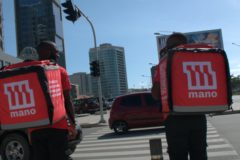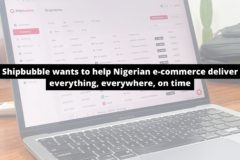Bolt drivers in Abuja are taking offline trips to avoid paying Bolt’s high commissions. But what about the safety of passengers?
One night in August, Safiya Usman, ordered a ride home on the Bolt app after meeting her friends for drinks. As soon as she got into the Toyota Corolla, the driver asked if it was a card or cash trip, to which she replied, “Card.” After asking how much the trip fare was, he informed her that he would only embark on the trip if they took it “offline”, to which she agreed as she didn’t want to spend more time waiting for another ride.
It wasn’t until the next morning that Usman realised that she had left her purse in the car, and wasn’t able to reach the driver as the trip had been cancelled. Luckily for Usman, her driver was an honest man and returned her purse the next day. But things could have ended badly, as there is no way to trace a driver if one agrees to an offline trip.
Offline trips on ride-hailing platforms like Bolt have become increasingly popular in Abuja since the fuel hike in May. Although fares were increased by about 30–40% after an extended conversation between the drivers and the company, the drivers still insist that the new prices are insufficient to cover operating costs, and have resorted to duplicitous means to avoid remitting the 25% commission to the company.
Safety concerns in Abuja make offline trips a risky venture
In the past few months, cases of “one-chance” kidnappings have been pervasive in Nigeria’s capital. These incidents are perpetrated by criminals who pose as taxi drivers to rob, kidnap or even murder unsuspecting passengers.
For a number of people in Abuja now, moving within the city comes with an added layer of fear, which they try to assuage by opting for ride-hailing apps, as opposed to buses or taxis. Riders can access the names and plate numbers of drivers, and can even share trip details with friends if they feel that they are in danger.
With offline trips, the entire safety point is defeated, according to Precious who works in a restaurant in the city. Since the news of taxi kidnappings and killings spread, she has started to use only ride-hailing apps to return home from work, even if they cost more.
“I don’t bother to use Bolt again because almost every time, the drivers request an offline trip and even go as far as emotionally blackmailing you when you refuse,” she said.“I always refuse though because I don’t see the point. The only reason I’m [opting for Bolt instead] of going to take a bus or taxi at the junction is so that I can report if anything happens or my friends know the details of my car and driver at least,” she concluded.
Lower costs for Bolt rides in Abuja raise questions about equity
Bolt rides are cheaper in Abuja than in other cities like Lagos, which is due to lower operational, regulatory, and taxational costs, according to the company. However, the price of fuel in both cities is the same, forcing drivers in Abuja to question the fairness of the situation.
“Our peers in Lagos are earning way more than us,” Austin, a bolt driver in Abuja shared as we waited for the traffic light to turn red. “I have friends there and know how much they earn per trip. Here, you do a trip of 30 minutes and Bolt charges ₦2,000, out of which I have to give them a commission. How much do you think I spend on fuel in a day?” he asked rhetorically.
According to Charles*, another Bolt driver, conducting offline trips is the only way to earn a profitable income with the ride-hailing app in Abuja.
“After buying fuel at a high rate of ₦630 per litre, and Bolt takes their 25% commission from every trip, amongst other expenses, how much do we have left?” he questioned.
According to him, certain customers willingly opt for an offline trip because they are aware that the job no longer provides adequate earnings for the drivers. However, he has also come across customers who decline offline trips due to concerns about their safety.
“Sometimes, I don’t ask. I have my way of doing it,” says David* when asked about the responses he gets from his customers after asking for an offline trip. “I can run an offline trip without you knowing and it will show on your phone that the trip is still on. Most customers don’t agree to do it because they feel unsafe, so I don’t bother asking,” David shared.
*Names have been changed to protect the identity of anonymous sources.






















